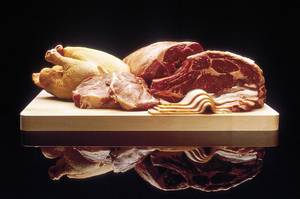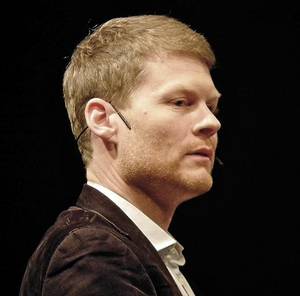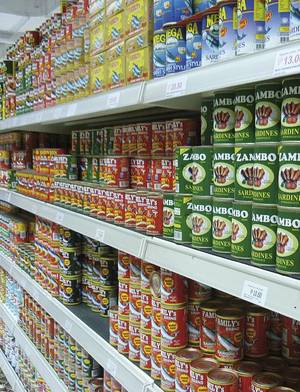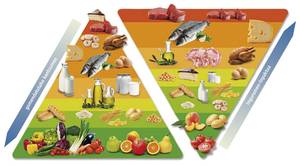Good diet for health and the environment
2013/06/01 Galarraga Aiestaran, Ana - Elhuyar Zientzia Iturria: Elhuyar aldizkaria
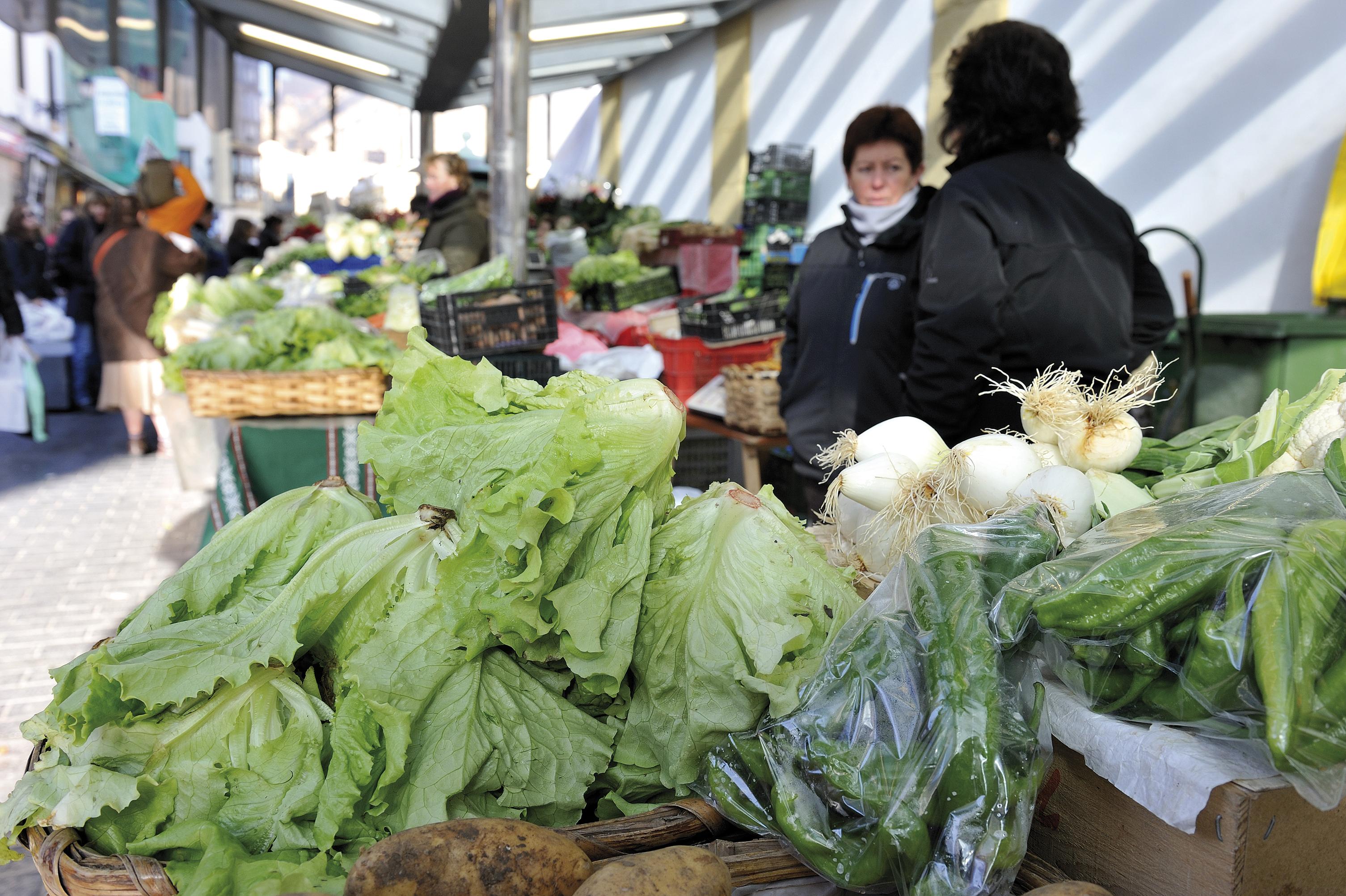
In recent times they have been researched in several countries to analyze how the diet should be, at the same time, to be healthy and sustainable with the environment. For example, last March the book entitled: Foods and dietary patterns that are healthy, low-cost, and environmentally friendly was published in New Zealand: a case study of optimization modeling for New Zealand.
The researchers start from the reality of New Zealand. On the one hand, in the introduction to research it is explained that, as a result of an inadequate diet and insufficient exercise, the life expectancy of the population is 10% lower than that corresponding to other socio-economic parameters. In addition, there is a great difference between the local population (majorities) and that of European origin, since the diet of the majorities is worse than that of others.
On the other hand, researchers recall that food production is between 19 and 31% of greenhouse gases. Therefore, with the aim of changing the trend, researchers have tried to detect the most adequate diet in terms of health, economy, environmental sustainability (for them, low greenhouse gas emissions) and typical New Zealand foods.
The study was conducted using a mathematical method, a linear programming, which has combined variables such as knowledge or not in the kitchen, being based on a Mediterranean or Asian diet, absence of animal ingredients (vegan diet), etc.
Finally they have not obtained unique and easy results, but have concluded that the best diet would be similar to the Mediterranean. In turn, some doubts are clarified. For example, they have seen that the Asian diet is cheap, but very limited; or that the vegan diet, besides being a little more expensive than obolactobegetarian, generates more greenhouse gases.
Researchers from New Zealand, however, have not been there and have called on politicians to change the fiscal system and lower taxes on healthy foods and the insane to go up. A list of foods that should be small taxes has also been proposed: flour, pasta, dried peas, eggs, milk powder, carrots, vegetable oil and, of course, kiwis.
European concern European concern
Although the last research published in this subject is from New Zealand, elsewhere, they have become similar. In Europe, last year, one was removed in England and France.
The English study is entitled to a question: "Is a healthy sustainable diet with the environment?" (Is it a healthy diet an environmentally sustainable diet? ). The study shows that meat and fish are the foods that emit more greenhouse gases. In addition, meat consumption in Britain is much higher than due, so reducing the consumption of both is beneficial for health and the environment.
However, researchers warn that it is not so simple, since culturally it is not possible for the British to become vegetarians (according to the 2008-2009 survey 2% of the population is vegetarian). In addition, the increase in the consumption of vegetables and fruits can mean an increase in the environmental impact of transport and cooling, so it has been insisted on the need to consider these variables, among others.
French researchers have also shown that a healthy diet does not necessarily reduce greenhouse gas emissions (High quality nutritional is not associated with low greenhouse gas emissions in self-selected diets of French adults).

However, the aforementioned investigations, although they serve to highlight the problem, are partial for some. This is the opinion of sociologist José Ramón Mauleón. At the UPV/EHU the subjects of Sociology of the Food and Nutrition and Culture System are taught, and states that they do not give sufficient importance to some key issues: "You can have a healthy diet with a low impact on the environment, but only that, in itself, does not seem enough to say that a diet is healthy and sustainable."
It is considered essential to take into account the social impact of this diet: "To be considered truly healthy and sustainable, I should know if socially it is also sustainable. It should be taken into account, for example, if all those involved in the chain between the production of food and the arrival in my mouth have worked in just conditions, if there has been equality between men and women, if that diet is accessible to all..."
Keys without going far away
But more than highlighting the shortcomings of previous studies, Mauleón prefers to propose solutions. Thus, taking into account the culture and characteristics of society, it has suggested some keys to achieving a healthy and sustainable diet.
The first key has also been shown in European studies, since it reduces meat consumption: "All studies show that we eat too much meat. And it is known that this is bad for health and very bad for the environment. Therefore, we should start out there." It proposes to replace meat with legumes and other vegetable foods rich in proteins. "Almost no one questions that for health and the environment it is better to eat lentils than fillets. The problem we have here is cultural. We have interiorized that the second dish should be meat or fish. How to change habits? There is the hill".
The second key corresponds to the modified food: "70% of the sugar and salt that we consume does not come from the sugar or the salt, from the processed foods and from the drinks. Therefore, if we replace them with fresh products, of course, we benefit health and the environment, since in the processes of preparation and marketing of these foods a lot of energy is used."
Then, Mauleón is committed to ecological agriculture. He explains that ecological agriculture does not use phytosanitary products of chemical synthesis or fertilizers. "In Alava, for example, aquifers are contaminated by products used in intensive agriculture. Therefore, by consuming organic farming foods, we are committed to the environment."
Also from a sanitary point of view, it is considered beneficial to eat organic farming foods: "According to the analysis of the EFSA -- the organization responsible for food security in the European Union -- food produced in the European Union, once prepared for consumption, does not exceed the concentrations of authorized pesticides. But, although within the legally established measures, they do. And there's a lot of debate about the consequences of consuming these residues of pesticides in special or long-term population groups."
One of the topics of discussion is the effect that can have the mixture of several products in the organism. According to Mauleón, although the organism is able to degrade each of these products, it is not sure that it is able to degrade them and eliminate them at the same time. "That is why I believe that ecological agriculture is respectful of the environment and also with consumer health."
By the shape, the near and the small
In this sense, highlights the importance of the consumption of seasonal products: "The energy expenditure involved in the production of a tomato in the tomato season is very low compared to the expenditure of off-season production or the external contribution."
After mentioning some keys related to food production, he has focused on the place chosen for the purchase of food: "It is evident that buying food in a big trade is not the same, as in the shop below. What's more, in some environments the option to buy directly from the farmer is spreading."
In the opinion of Mauleón this option is totally beneficial: "It's good for everyone. First of all, for personal health and the environment, since it is a fresh, seasonal product and unaltered and marketed first hand. And then, also for society, because the worker of the primary sector receives directly the corresponding compensation".
In this regard, it has indicated that the work of small farmers in the conservation of the environment is not sufficiently taken into account. Through direct sales and fair trade, they are given a certain recognition and are helped to continue their work.
In addition, when buying directly from the farmer or the trader, the model promoted by shopping centers escapes. In fact, consumer associations and other agents have frequently denounced the strategies of large businesses to encourage excessive consumption. On the other hand, its policy regarding the producers and the conditions of the workers are also very debatable. For all this, Mauleón is committed to buying directly from the producer or small trader.
McDonaldizkaria is the trend
Another key is to take good advantage of food, not waste anything. For this purpose, Mauleón considers it essential to know how to cook: "In fact, those who do not have skill in the kitchen will not know what to do with the remains left of the previous meal, or with food or undervalued parts, and will throw them away. It will also tend to buy transformed or pre-cooked food."
That is why it is necessary to know in the kitchen. There is no doubt: "Or you cook yourself or feed yourself." Therefore, it relates knowledge in the kitchen to being oneself.
For Mauleón, the loss of the habit of cooking has not necessarily occurred, but is a consequence of a strategy. It coincides with the thesis of Canadian researchers Jaffe ta Gertler. In fact, these two authors have shown that the "McDonaldizkaria Magazine" is not because consumers themselves prefer easy, transformed, fast and cheap edible products, but rather that the food industry has carried out a disinformation campaign to modify the criteria of consumers and so that the industry can bet on what it offers, regardless of what it liked before.
The researchers have analyzed the consequences of the loss of skill in the kitchen from different points of view, among which is the gender: Consumer deskilling and the (gendered) transformation of food systems, for example (Food supply, Incapacitation of consumers and evolution of food systems by gender). The authors are clear that the ability to eat healthy and sustainably - and the loss of capacities caused by the system - has a gender dimension.
However, there are initiatives to change the trend and work the ability to cook. For example, the San Marcos Commonwealth (Gipuzkoa) released a collection of recipes in 2008 to take advantage of the food remains and distributed 116,000 copies in 10 municipalities.
Under the title “Cleaning the Cooked” are collected, in addition to recipes, some aspects to take into account when making the purchase, as for example, to check what we have at home before going to make the purchase; purchase list to foresee what will be eaten in the next few days; to look at the expiration date of the products...
Although the councils are reasonable and wise, those of the Commonwealth of San Marcos consider it convenient to remember that, despite the crisis, much food is still thrown into the homes. Specifically, according to a study published by Eroski Consumer in January, an average of 32 kilos of food per person per year is issued. Bread, cereals and other pastry foods (19%), fruit and vegetables (17%), milk and dairy products and pasta, rice and legumes (13%) are wastes that are discarded. Basic foods.
From the individual to the political
Taking into consideration and acting accordingly the keys that Mauleón has mentioned to achieve a healthy and sustainable diet depends on each of us. But beyond oneself, he considers that there is also much to do in politics. For this purpose, it considers the economy of the common good especially adequate.
The economy of the common good is an economic system proposed by economist Christian Felber, characterized by the fact that companies do not compete among themselves, but collaborate to favor the entire society. At present, 717 companies from 15 countries, three European banks and 129 organizations use this economic system, whose success is not measured by financial benefit, but by the common good.
Felber denounces that the current economic system excludes people and the environment, and that by measuring the success of a company, the rights of workers, the political system of the country, are not taken into account if they are at peace or at war...
Before this, it proposes to measure to what extent the company cares for and protects human values, such as social justice, democracy, gender equality and environmental sustainability, and to use this valuation to establish fiscal advantages. In addition, the fact that these values are measurable allows consumers to have better criteria to decide who to buy or hire products or services.
Mauleón has set the example of coffee to explain the change in the economy of the common good: "Coffee consumed in Europe comes from abroad. If it comes green, it pays a very small tax, while if it comes transformed (toasted, ground, packed) a huge tax is applied to it. Its goal is to support European industries like Nestle. That is, it is clear that the authorities apply policies to protect the interests of some."
Here is a successive question: "How is it possible to sell pork at such a low price on the market? Is the environmental impact of the nursery included in the price of this meat? And what kind of agreements does the producer have with the workers? And the shops with the producer? If all this were so, we would realize how expensive the meat they sell at economic prices is."
Therefore, it seems logical for him to enact other policies to change course. "The truth is that I think that is the opportunity to solve all this, the economy of the common good."






